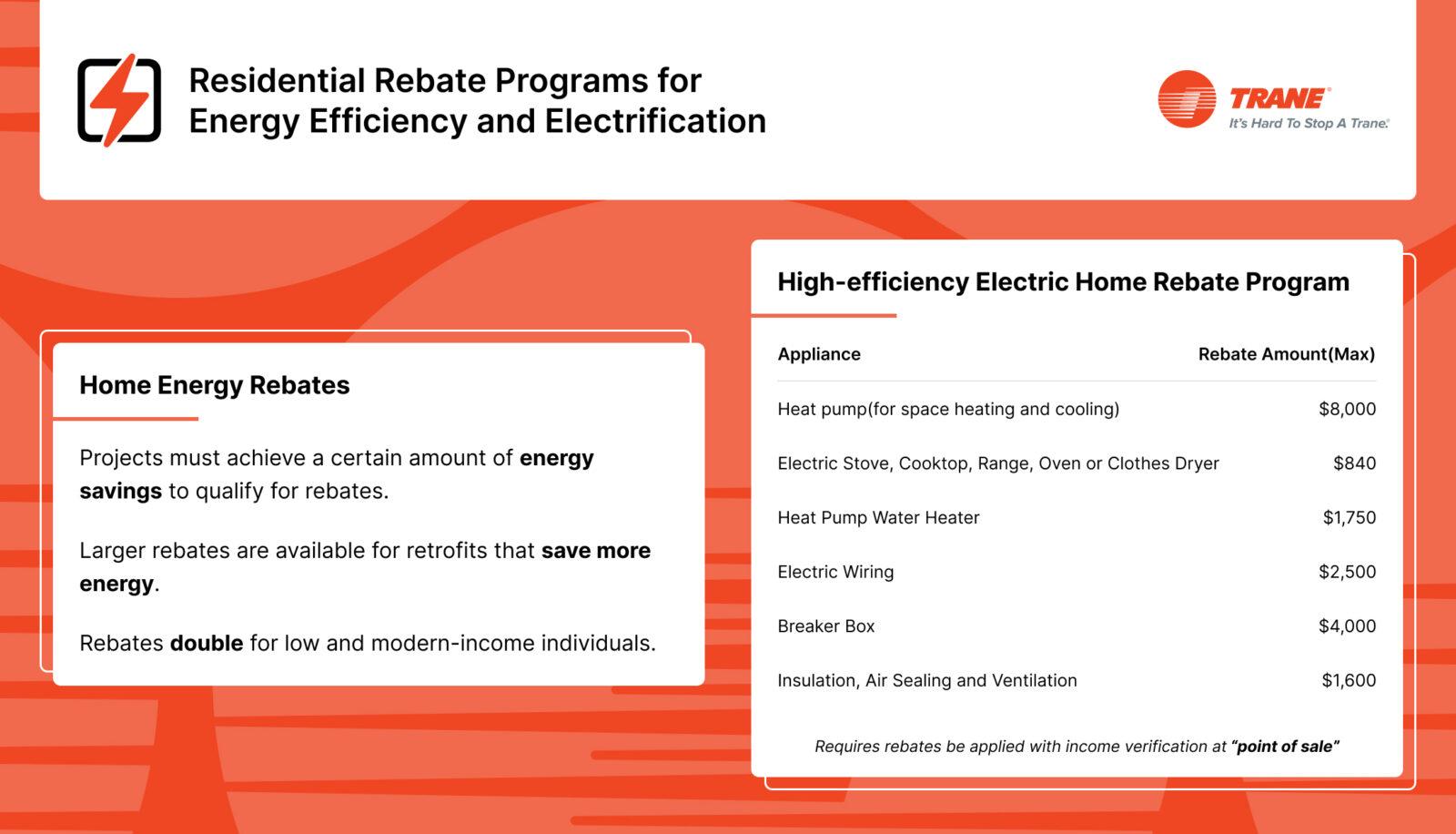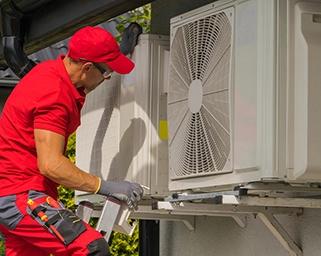New Heat Pump Rebates: DOE Home Energy Rebates Program
The incentives to heat and cool your home with an electric heat pump just keep getting better.
By Anne Fonda
New York State was the first to roll out new heat pump rebates under the Department of Energy (DOE) Home Energy Rebates Program. Wisconsin joined the party next, followed by Arizona and New Mexico. Check the status of heat pump rebates in your state.
Good news for Floridians: After initially rejecting the IRA funds, Florida’s new fiscal year budget includes more than $346.3 million, which is the state’s share of the IRA’s Home Electrification and Appliance Rebates (HEAR) program. It will offer direct-to-consumer rebates for the purchase of qualifying appliances, including up to $8,000 for a heat pump. Florida hopes to have its rebate program underway in 2026.
The federal government rebate program will provide federal funds to the states that apply. The states will then administer the rebate programs. These new energy rebates are also separate from state rebates already offered as well as utility rebates.
What is a heat pump?
If you have a boiler or a traditional gas furnace and AC combo, you may be wondering what all of the fuss is about when it comes to heat pumps. It’s this: a heat pump system offers an all-electric and highly efficient way to heat AND cool your home. The more heat pumps are put into homes, the more we as a nation reduce carbon emissions from natural gas and oil-burning furnaces.
A new electric heat pump will also be more energy efficient than an older residential HVAC system, saving you money on your heating and cooling bills. It’s a win-win.
How does a heat pump work?
A heat pump uses heat energy and through heat exchange, transfers it to a cooler environment. This means the air source unit takes the heat from the air outside and transfers it into your home in the winter. It then reverses the process and moves heat inside your home to the outside in the summer. A split system ducted heat pump paired with an air handler is best suited for milder climates without harsh winters.
Heat pump vs furnace
It doesn’t have to be one or the other. You can also use heat pumps in cold climates. With a dual-fuel heat pump system, you pair a heat pump with a furnace. In this hybrid heating system, the heat pump cools in the summer and heats well into the fall, but when temperatures get too cold (generally below 35 degrees), the gas furnace kicks in to keep your home warm and toasty.
Trane also plans to introduce a new cold climate heat pump in 2026, capable of performing in temperatures as low as negative 20 degrees Fahrenheit. Contact your local Trane dealer to be put on a notification list when these new heat pumps are available.
Two programs with one goal: energy-efficient homes
The Home Energy Rebates program is an umbrella term in the IRA that covers two energy rebate programs. They are the Home Efficiency Rebates (HER or HOMES) program and the Home Electrification and Appliance Rebates (HEAR) program. HEAR is also referred to as the High-Efficiency Electric Home Rebate Act (HEEHRA) by some states.
Which IRA heat pump rebate program is best for you will depend on your goals, your income level, and other factors. We refer to these clean energy programs as heat pump rebate programs because federal rebates for heat pumps and the associated electrical work (if needed) offer the biggest incentives. But both programs cover other energy-saving upgrades as well.
Let’s take a look.

Home electrification and appliance rebates program
The DOE recommends the HEAR program for households who have an income that is average or below average in their area. It can help pay for HVAC upgrades and appliance upgrades.
HEAR gives preference to low-income or middle-income households who make less than 150% of the average median income (AMI) for their area. Don’t automatically think you don’t qualify because of the “low and moderate-income” phrasing. In some parts of the country, 150% of AMI is more than $140,000.
This program provides households with up to $14,000 in rebates. It covers up to 100% of costs for lower-income families and up to 50% for moderate-income families. The electrification of heat is eligible for the biggest rebates.
Qualifying projects and the maximum rebates may include up to:
- $8,000 for an ENERGY STAR®-certified electric ducted heat pump or ductless mini-split system for heating and cooling
- $4,000 for an electrical panel
- $2,500 for electrical wiring
- $1,750 for an ENERGY STAR®-certified electric heat pump water heater
- $1,600 for insulation, air sealing, and mechanical ventilation products
- $840 for an ENERGY STAR®-certified electric heat pump clothes dryer and/or an electric stove, cooktop, range, or oven
Check to see if you qualify in your state by contacting your state energy department. As they begin to participate, states should launch websites similar to the NY Clean Heat website. You answer a set of questions, and the site tells you what you might qualify for. Websites will also give you a list of state-approved HVAC contractors near you.
It’s important to understand that under program rules, the federal heat pump rebate money goes directly to the state-qualified heat pump installer, electrician, or other vendor. So, it’s a point-of-sale rebate, essentially a big discount. You do not receive a lump sum payment from the state.
Home efficiency rebates program
Home efficiency rebates are available to homeowners and renters at any income level and apply to home improvements that reduce energy usage. The DOE recommends the HOMES rebate program when you’re “taking a comprehensive set of actions to reduce your energy usage.”
These upgrades include:
- Heat pump conversion with an eligible heat pump
- HVAC system upgrades
- Window replacement
- Insulation upgrades
- Wisconsin is allowing furnaces so other states likely will as well
Before starting your upgrades, get a home energy audit to see where to make improvements. Qualifying home improvement products must be ENERGY STAR®-certified.
You can save up to $8,000 depending on your household income and the project’s energy savings, as verified by approved modeling software. Your project will need to reduce your home’s energy usage by 20% for smaller incentives. Savings of 35% lead to the highest incentive of $8,000.
How much does a heat pump cost?
It depends. A heat pump system is a major investment in your home’s energy efficiency, as is any new HVAC system. Your heat pump installation cost will vary based on multiple factors, including:
- The capacity of the unit in tons
- Electrical upgrades needed (if any)
- Efficiency of the unit (SEER2 and HSPF2 ratings)
- Condition of existing ductwork
- Whether you install a heat pump/air handler or heat pump/furnace
- The brand
- The installer you choose
- Which rebates you qualify for
If you need to replace an aging HVAC system, now may be a great time to go all-electric with your heating and cooling. Depending on the rebates you qualify for and your income, rebates and tax credits could cover the entire cost.
Schedule a heat pump installation consultation
Whether you’re planning on heat pump replacement and want to take advantage of these new rebates, work with local HVAC experts. Ask about any manufacturer's rebates that may be available.
Contact your local Trane dealer today to set up a free home heating and cooling evaluation, followed by a free quote with product recommendations tailored to your home. Your dealer will help make sure you take advantage of all of the incentives that you are eligible to receive.
Anne Fonda
Content Writer, Trane Technologies
A Content Writer with Trane Technologies, Anne Fonda researches topics and writes for Trane® and associated residential HVAC brands. She works in collaboration with Trane Technologies subject matter experts, offering easy-to-understand, informative content on complex topics. Her goal is to help consumers make informed decisions on the products and services they need.
She has written for HVAC and other service provider websites for over 16 years. Before transitioning to web content writing, Anne had a 14-year stint as an award-winning journalist. She graduated cum laude from the University of Missouri-Columbia School of Journalism.
When she’s not working, Anne enjoys playing word games, reading, gardening, spending time with family, and visiting gardens and museums.
Mark Woodruff, Senior Product Manager, Ducted Outdoor, and Josef Hejda, Electrification Commercialization Leader




